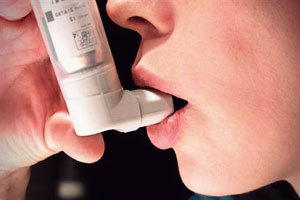Effective allergy treatment
begins with an accurate diagnosis but unfortunately many Americans are choosing
to skip this step, relying on guesswork and self-diagnosis to guide their own
self-treatment. This is compounded by the many unreliable and inaccurate
allergy testing kits available over the counter which can lead to a misdiagnosis.
False-positives cause anxiety and unnecessary lifestyle changes while a
false-negative can lead to someone not taking action when they need to,
increasing their risk of a severe reaction in the future.
The only way to get a truly
reliable result is to visit an allergist specialist at an asthma & allergy clinic. An
expert can provide you with an accurate diagnosis and a full range of options
for managing your condition effectively.
Tests are typically done using
skin or blood tests, with skin testing being the preferred method for most
situations as results typically appear within 20 minutes. As the tests are done
using an allergen there may be some small discomfort if a reaction occurs and there
is a very small possibility of a more severe reaction – but by visiting an
expert you know you are safe with someone trained for every possibility.
If you are taking certain
medicines, have a skin condition (such as eczema) or you are highly likely to have
a severe reaction then your specialist may choose to use a blood test instead
of a skin test. The allergy specialist will know which test is best for you or
your child based on your circumstances and medical history.
Using their training and
experience, a true asthma and allergy clinic will be able to make a diagnosis
regardless of your skin type, substantially reducing the risk of
misinterpretation, misdiagnosis or mismanagement of your condition.
Once you have an accurate
diagnosis the specialist will be able to make recommendations on changes to
your lifestyle and diet to enable you to effectively manage your condition,
reduce the risk of a severe reaction and increase your quality of life.

